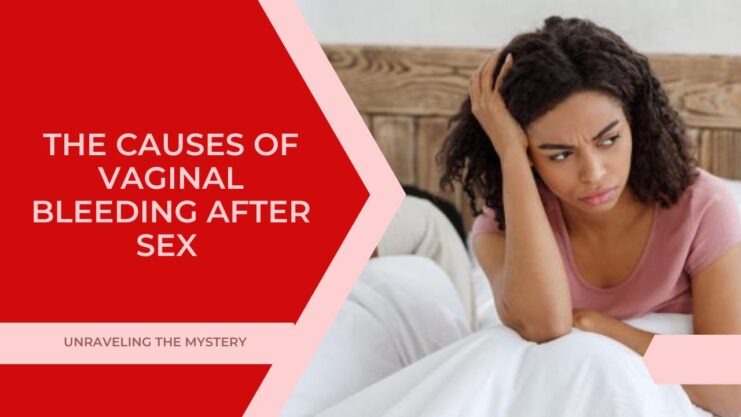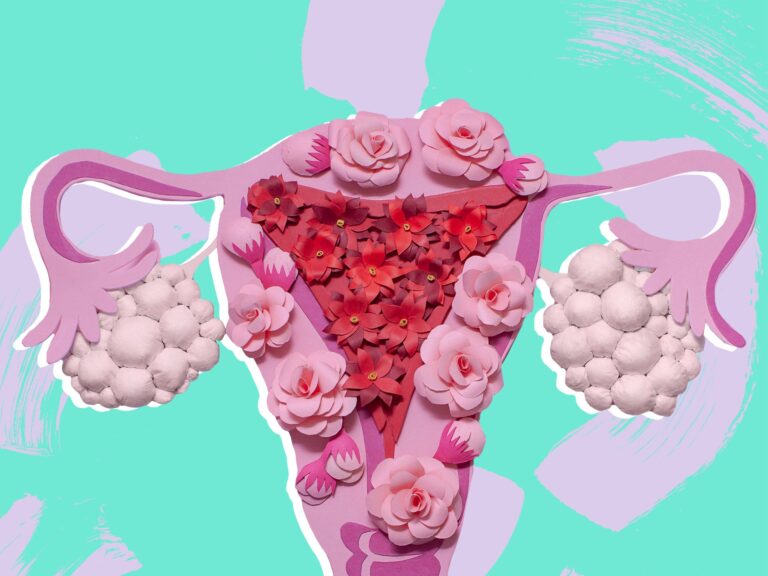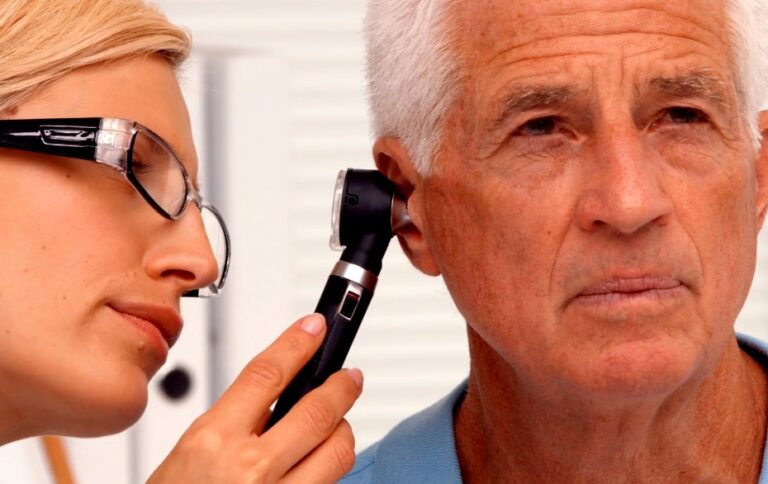Post-coital, or vaginal bleeding after sex, is a concern that many women encounter at some point in their lives. It’s a symptom that can be alarming and often leads to anxiety and worry. However, it’s important to understand that while it can be a sign of an underlying health issue, it’s not always the case. This article aims to shed light on the various causes of post-coital, from normal physiological factors to more serious conditions.
The occurrence of post-coital doesn’t necessarily indicate a severe problem. It can be due to a variety of factors, some of which are quite normal and others that require medical attention. Understanding these causes can help alleviate unnecessary worry and guide you in seeking appropriate medical care when necessary.
Engaging in intimate relations is an essential aspect of human relationships, and experiencing bleeding during or after such encounters can create anxiety and apprehension. These psychological strains can subsequently hinder the quality of one’s sexual and emotional life.
For individuals who have regular menstrual cycles and are not approaching menopause (generally around the age of 45 and above), infection is one of the more prevalent causes for postcoital bleeding. It’s important to recognize that not all infections are sexually transmitted.
There are a variety of infections that can affect the reproductive organs, such as bacterial vaginosis, yeast infections, or sexually transmitted infections like chlamydia or gonorrhea. These infections can inflame the cervix, making it more susceptible to bleeding, especially during intercourse.
Possible causes:
- Menopause
- Infection
- STDs
- Cancers
- Polyps
- Abrasions
- Others
Normal Physiological Factors
In some cases, a small amount of vaginal bleeding after sex can be considered normal. This is particularly true during the initial stages of sexual activity or after a long period of abstinence. The vagina is a sensitive area, and it can take time to adjust to the physical stimulation of intercourse.
One physiological factor that can contribute to a minor is cervical friability. This term refers to a condition where the cervix is more prone to bleeding upon contact. It’s often seen in pregnant women due to increased blood flow to the cervix but can also occur in non-pregnant women. While it’s generally harmless, it’s always a good idea to consult a healthcare provider if you notice any bleeding after sex.
Another normal physiological factor is ovulation. Some women may experience light spotting during ovulation, which can coincide with sexual activity. This is due to hormonal changes that occur during the menstrual cycle. While it’s typically nothing to worry about, it’s always best to keep track of your menstrual cycle and any associated symptoms.

Cervical Causes
Various cervical conditions can cause post-coital bleeding. One such condition is cervical ectropion, also known as cervical erosion. This condition occurs when the cells that are typically found inside the cervical canal spread to the outer surface of the cervix. These cells are more delicate and can bleed easily when touched, such as during sex.
Cervical polyps are another cause of post-coital. These are small, benign growths on the cervix that can bleed after intercourse. While they’re usually harmless, they can sometimes cause discomfort and heavy menstrual bleeding.
Cervicitis, or inflammation of the cervix, can also lead to post-coital bleeding. This condition can be caused by a variety of factors, including sexually transmitted infections, allergies, or chemical irritants. Treatment depends on the underlying cause and may include antibiotics or other medications.
Vaginal Causes

Vaginal conditions can also lead to post-coital. One common cause is vaginal dryness, which can result from hormonal changes, certain medications, or lack of arousal before sex. This dryness can lead to friction during intercourse, causing minor tears and bleeding.
Vaginal atrophy, a condition that occurs when the vaginal walls thin and dry out, often due to menopause, can also cause post-coital bleeding. This condition can make sex painful and increase the risk of minor vaginal injuries. Treatment typically involves estrogen therapy to help restore the health of the vaginal tissues.
Infections, such as bacterial vaginosis or yeast infections,can also cause post-coital bleeding. These infections can cause inflammation and irritation of the vaginal tissues, leading to bleeding. Treatment usually involves antibiotics or antifungal medications.
Infections and Sexually Transmitted Infections (STIs)
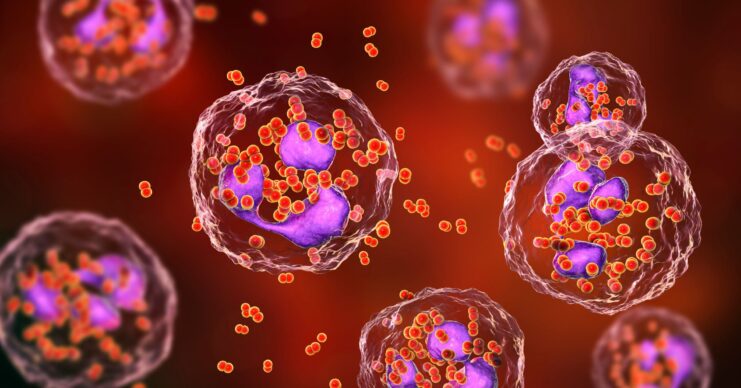
Certain infections, including sexually transmitted infections (STIs), can result in post-coital bleeding. For instance, chlamydia and gonorrhea, two common STIs, can cause inflammation of the cervix, leading to bleeding after sex. It’s important to note that many people with these infections don’t exhibit symptoms, so regular screenings are crucial.
Other infections, such as trichomoniasis, can also cause post-coital bleeding. This STI is caused by a parasite and can lead to a frothy, foul-smelling vaginal discharge, itching, and post-coital bleeding. Treatment typically involves antibiotics.
The human papillomavirus (HPV) can also cause post-coital. Some strains of HPV can lead to cervical cancer, which can cause bleeding after sex. Regular HPV vaccinations and cervical cancer screenings can help prevent this.
Trauma and Injury
Physical trauma or injury during sex can lead to vaginal bleeding. This can occur due to rough intercourse, lack of lubrication, or the insertion of foreign objects. It’s important to ensure that sex is always consensual, gentle, and that adequate lubrication is used to prevent injury.
Rough sex may also cause tears and lacerations of the vaginal walls. Should this happen, wash and apply antiseptic with alcohol or povidone immediately to prevent any infection. Strict hygiene should be practiced.
In some cases, post-coital bleeding can be a sign of sexual assault. If you suspect this is the case, it’s crucial to seek help immediately. There are numerous resources available, including hotlines and support groups, that can provide assistance and support.
Lastly, certain surgical procedures or medical treatments, such as radiation therapy for cancer, can cause post-coital bleeding. If you’ve recently undergone a medical procedure and are experiencing it after sex, it’s important to consult your healthcare provider.
Hormonal Factors

Hormonal imbalances can also cause post-coital bleeding. Fluctuations in estrogen levels, for instance, can lead to changes in the vaginal and cervical tissues, making them more susceptible to bleeding. This is often seen during menopause, when estrogen levels decline, or during periods of stress, when hormone levels can fluctuate.
Hormonal contraception, such as birth control pills or intrauterine devices (IUDs), can also cause post-coital bleeding. This is usually temporary and resolves as the body adjusts to the contraception. However, if the bleeding persists, it’s important to consult a healthcare provider.
Lastly, conditions such as polycystic ovary syndrome (PCOS) can cause hormonal imbalances that lead to post-coital. PCOS is a common condition characterized by high levels of androgens (male hormones), irregular periods, and cysts on the ovaries.
Underlying Medical Conditions
Certain underlying medical conditions can contribute to post-coital. Endometriosis, a condition where tissue similar to the lining of the uterus grows outside the uterus, can cause painful intercourse and bleed afterwards. Treatment typically involves pain management and hormonal therapy, and in severe cases, surgery.
Fibroids, noncancerous growths in the uterus, can also cause post-coital. These growths can cause pressure on the uterus, leading to pain and bleeding. Treatment options include medication to shrink the fibroids or surgery to remove them.
Pelvic inflammatory disease (PID), an infection of the female reproductive organs, can also cause post-coital. PID is often caused by untreated STIs and requires prompt treatment with antibiotics to prevent serious complications.
Psychological Factors

Psychological factors, such as anxiety or stress, can influence post-coital. Stress can lead to hormonal imbalances, which can cause bleeding. Additionally, anxiety canlead to physical symptoms, such as vaginal dryness, which can result in bleed after sex.
It’s important to consider mental health when addressing post-coital. If you’re experiencing high levels of stress or anxiety, it may be beneficial to seek support from a mental health professional. Techniques such as mindfulness, meditation, and cognitive-behavioral therapy can also help manage stress and anxiety.
Moreover, the fear of post-coital bleeding itself can create a vicious cycle. The anxiety about can lead to vaginal dryness, which can, in turn, lead to bleeding. Open communication with your partner about your fears and concerns can help alleviate this anxiety.
What to do
When you are experiencing any kind of vaginal bleeding, it is best to abstain from sex for the time being until you see a doctor. This will get your bleeding controlled and allow you to monitor its characteristics – whether or not it happens after intercourse, its frequency, amount and its constancy.
Besides, it will help prevent spreading of unknown underlying infection. If bleeding is profuse, vaginal packing with mild pressure should be applied, and immediately see a doctor. Pain can be temporarily relieved by aspirin or diclofenac found at any pharmacy.
Be sure to practice a strict hygiene as any injury or abnormality of the vagina or cervix is a welcoming sign to infection. Washing after your visit to the toilet assures safety from gonorrheal or other bacterial infection.
Be sure to consult a doctor before taking any over-the-counter antibiotics, as they may aggravate fungal infection if the fungus is the culprit. Watch out for other abnormalities and changes, such as pain, increased or continuous bleeding, and any kind of discharge.
When to Seek Medical Attention
While occasional light bleeding after sex can be normal, it’s important to know when to seek medical attention. If you’re experiencing persistent or heavy post-coital bleeding, it’s crucial to consult a healthcare provider. Similarly, if it is accompanied by other symptoms such as pain, unusual vaginal discharge, or irregular periods, you should seek medical advice.
It’s also important to seek medical attention if you’re postmenopausal and experience any vaginal bleed, including after sex. This is because postmenopausal it can sometimes be a sign of more serious conditions, such as endometrial cancer.
Being in your late 40s is a criteria for regular gynecological check-ups. Bleeding at this age, with or without intercourse, calls for a doctor’s visit to determine the source of bleeding. Cervical cancer is the number one suspect which should be ruled out during your visit. Endometrial Cancer is rarer but also a possible cause
Lastly, if you’re pregnant and experience it after sex, it’s important to seek immediate medical attention. While light spotting can be normal in early pregnancy, heavier can be a sign of complications such as miscarriage or ectopic pregnancy.
Diagnosis and Treatment
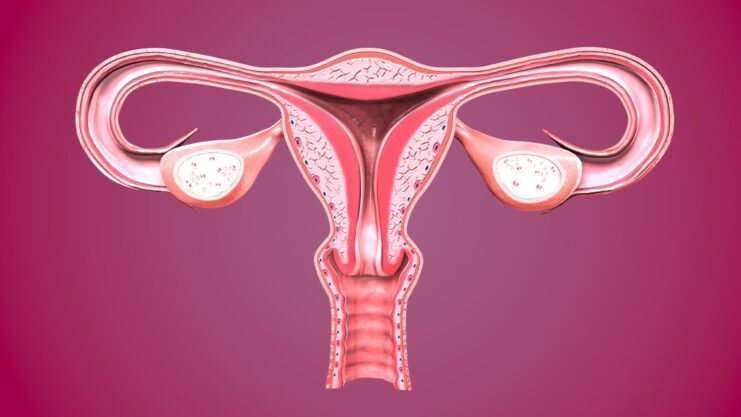
The diagnosis of post-coital typically involves a thorough medical history and physical examination. Your healthcare provider may ask about your symptoms, sexual history, menstrual cycle, and any underlying health conditions. They may also perform a pelvic exam to check for any abnormalities.
Further tests may be required to identify the cause. These can include a Pap smear to check for cervical cancer, a biopsy to examine cervical or vaginal tissue, or an ultrasound to look at the pelvic organs. In some cases, a hysteroscopy may be performed, which involves inserting a small camera into the uterus to look for abnormalities.
Treatment for post-coital depends on the underlying cause. This can range from antibiotics for infections, hormonal therapy for conditions like endometriosis or vaginal atrophy, or surgery for conditions like fibroids or cervical polyps. In some cases, counseling or stress management techniques may be recommended to help manage psychological factors.
Conclusion and Prevention Tips
Post-coital bleeding can be caused by a variety of factors, from normal physiological changes to more serious underlying conditions. Understanding these causes can help guide appropriate treatment and alleviate unnecessary worry.
Preventive measures can include maintaining good vaginal health, using appropriate lubrication during sex, and having regular check-ups. Regular STI screenings and Pap smears can also help detect conditions that can cause post-coital bleeding. Additionally, open communication with your partner about your comfort and any concerns can help prevent injury and reduce anxiety.
Remember, while occasional light bleeding after sex can be normal, persistent or heavy bleeding should be evaluated by a healthcare provider. Your health and comfort are important, so don’t hesitate to seek medical advice if you have any concerns about post-coital bleeding.
Related Posts:
- Understanding Abnormal Vaginal Bleeding: Unraveling…
- Vaginal Bleeding During Early Pregnancy: Causes and…
- HP Laptop Stuck On HP Screen: Reason & Solution -…
- False Negative HIV ELISA Test: Decoding the Mystery
- Vaginal Infection: Symptoms, Causes, and Prevention
- When to Test for HIV During and After Completion of…

